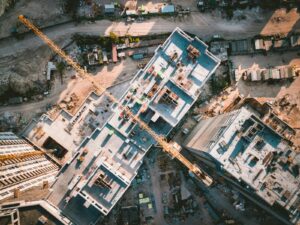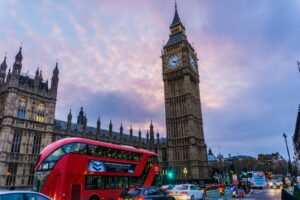How to build a positive Olympics legacy? Focus on people, not projects
 For this month’s blog I spoke to Ian Freshwater about how to make the Olympics’ regeneration legacy work for communities in east London.
For this month’s blog I spoke to Ian Freshwater about how to make the Olympics’ regeneration legacy work for communities in east London.
The long-term legacy of the 2012 games is a hotly contested issue. Some fear the wholesale gentrification of the east end and point to the controversial redevelopment of the Carpenters Estate in Newham as a case in point. The London Legacy Development Corporation (LLDC), amongst others, maintain that the additional investment generated by the Olympics will result in improved housing and facilities for everyone.
As we prepare to the debate the Olympics legacy at next week’s New Start event East London: Ten Years of Change, I spoke with Ian Freshwater about his views on how to make the legacy a lasting and positive one.
In the years when London was preparing for the games, Ian Freshwater was Hackney Council’s area co-ordinator for Hackney Wick. ‘The Wick’ is one of the most mixed and mosaic areas of London, with hipster cafes and artist studios sitting alongside severely deprived estates and a chunk of the Olympic Park. The diversity of the Wick begs an increasingly urgent question: how can the legacy be made to work for these diverse groups?
Freshwater’s job was to make politicians’ promises of Olympics-inspired regeneration a reality. This was no easy task. Few major sporting or cultural events leave positive legacies. More often than not, they displace existing communities to make space for new homes and facilities which benefit higher-income households. The modern Olympics motto could be faster, higher, stronger, gentrifier.
A LEGACY IN THE BALANCE
Freshwater’s analysis of the legacy is nuanced, and informed by years working on the detail of regeneration programmes. He can point to new infrastructure and improved housing that he helped bring to his old patch, and talks to local businesses that have been boosted by the games, but he remains critical of how the Olympic developments have been managed so far.
His over-riding concern is that the potential for regeneration that benefits local residents may be lost forever. In his analysis, the approach to development around the Olympics site follows the property-led ‘trickle down’ model that has been used – and criticised – so often before: ‘The LLDC do have a local focus but their core objective will always be on large real estate projects.’
As a result of the focus on property-led development, there is a real risk that existing east London communities stand to lose the most and benefit the least: ‘The promise of changing the east end in this way over such a long time period is unlikely to benefit existing local residents now – they’ll either move on, be priced out or die out. There isn’t clear enough explanation of the benefits the Olympics will actually bring to the people who live there now.’
With boroughs forced to make deep cuts, he’s sceptical of their ability to effectively shape and scrutinise development in future.
ORGANISATION AND COLLABORATION
It’s not too late to make the legacy a positive one, but the pressure has to come from communities.
He cites the Big Local programme, which puts £1m into the hands of local communities for social investment, as one example of how the bottom-up approach can exert ‘leverage’ on the big players who would otherwise ignore them.
‘It’s a great opportunity for communities; they’ve got their own money, a partnership, a plan. It means they assert their own rights rather than hoping to get side benefits from big regeneration projects. It could really be a collaborative approach with benefits for all.’
The guiding principle for Freshwater is simple: ‘you’ve got to break even the biggest projects down into the human scale’. And his critique is that the Olympic delivery agencies have failed to do just that, with their focus on big-ticket developments at the expense of meaningful improvements for existing residents.
It would be a social and cultural disaster if the Olympics that were sold to the world on London’s vibrant and multicultural character led to the creation of a homogenised, gentrified east end.
Freshwater is optimistic that this fate can be avoided, but it will require new forms of collaboration between the big players of the regeneration scene and local neighbourhood groups. A positive legacy will have to be built up from the ground because it will never trickle down.















